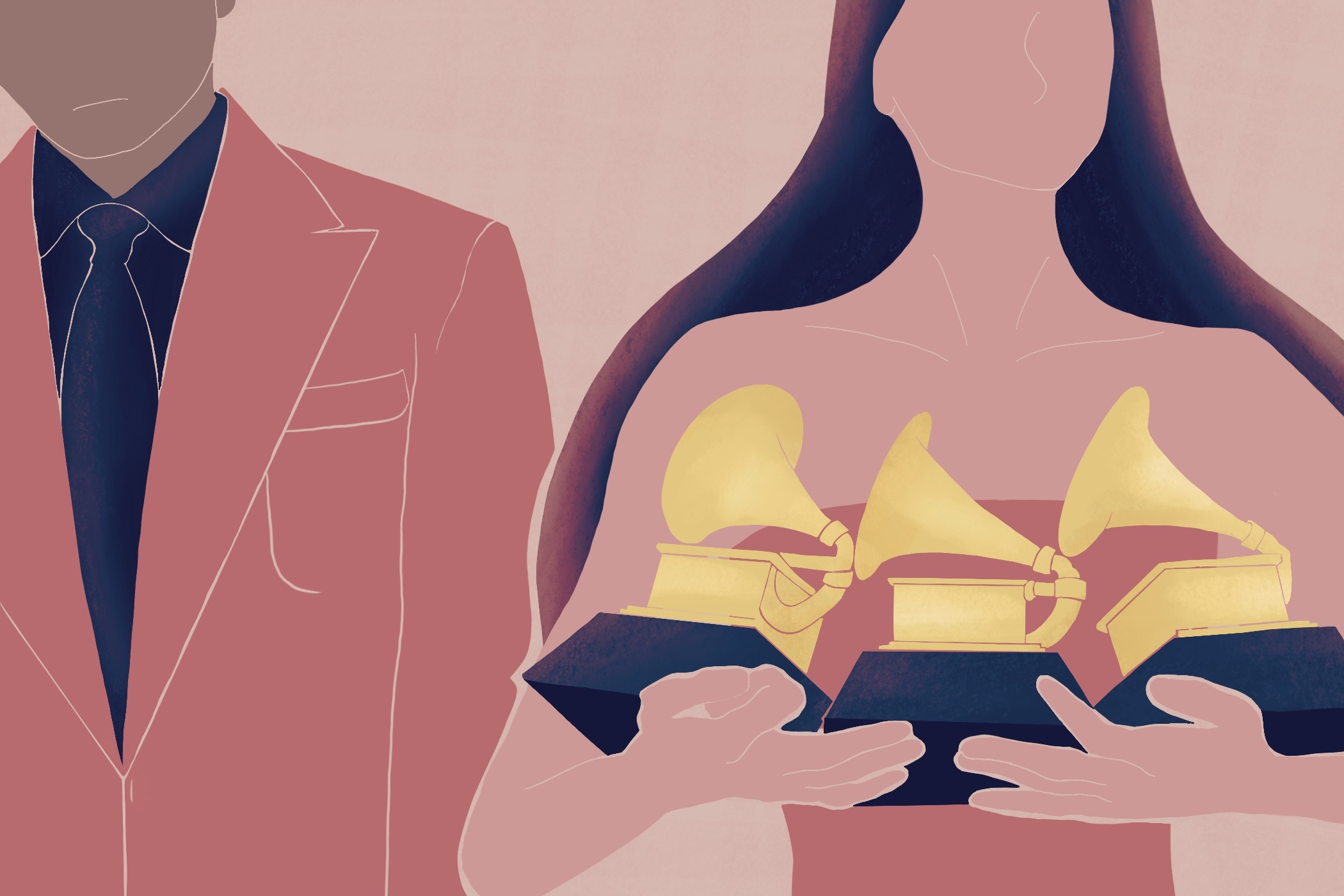The music industry is, without a doubt, one of the most powerful cultural entities serving to unify people from all walks of life. It has provided a platform for people of all backgrounds to share their artistry and creativity. Fans eagerly look forward to music awards season to see their favorite artists recognized for the countless hours of work that go into their music. Nominations and awards are especially important to artists of color as their recognition is monumental to both the artists and the minority groups they represent. With the release of the 2021 nominations for the Grammys, it has come to light that music awards systems have hidden discriminatory processes when selecting artists for nominations and even when deciding their awards categories.
The Grammy Awards is one of the highest honors in the music industry, so it is no surprise that Grammy nominations for people of color are a great step forward in the movement for diversity and representation. Last week, the 2021 Grammys nominees list was released and lit a wildfire on social media in regards to its failure to acknowledge top-charting releases from artists of color. This outpouring of support for snubbed artists of color prompted fans to point out how this occurrence isn’t an anomaly in the history of the Grammys — it’s a discouraging trend.
The Past
The secret voting system was created to prevent lobbying, which is understandable for such a coveted award. However, it is simultaneously problematic as listeners and artists alike are left in the dark to wonder if there is adequate diversity and representation among those that decide — especially since the growing allegations of racial bias in the secret Grammy voting group have been brought up for the past two decades.
Following Kendrick Lamar’s loss to Taylor Swift for album of the year in 2016, interdisciplinary scholar John Vilanova of Lehigh University addressed the lack of racial equality in the Grammy Awards. Villanova wrote, “In the last ten years, there have been seventeen non-white artists nominated for the Grammy Award for album of the year, of those seventeen, the only winner was Herbie Hancock in 2008. His album was a collection of covers of songs by the white folk artist Joni Mitchell.”
He continued by addressing how the genre labels for the awards bear racial undertones. For example, every single on Beyonce’s 12-track album “Lemonade” charted on Billboard’s Top 100, smashing Taylor Swift’s previous record of 11. Despite shattering records in mainstream pop, the album only secured a nomination for best urban contemporary album.
Furthermore, Beyonce’s track record as a solo artist has made her one of the world’s biggest pop icons, but the Grammy Awards have chosen to only award her Grammys in the urban contemporary and R&B subcategories. There is a tremendous lack of POC being awarded for major categories such as song or album of the year. According to the Los Angeles Times, “The last black woman to win album of the year was Lauryn Hill, in 1999. Only three black women have ever won the award for album of the year.”
The Present
Nominations for the 2021 Grammy Awards have proven to be one of the most controversial years in Grammys history. Initial reactions were relatively positive due to female artists such as Billie Eilish, Megan Thee Stallion and Taylor Swift sweeping a strong number of nominations.
However, the uproar picked up steam when The Weeknd took to Twitter to make a statement about the lack of transparency and the existence of racial bias in the nominations and awards process. In a moment of disappointment and disgust, The Weeknd made a powerful tweet stating, “The Grammys remain corrupt. You owe me, my fans and the industry transparency…” in regards to his album “After Hours” receiving zero nominations in any of the categories he submitted it to. A very shocking revelation considering the album debuted at No. 1 on the Billboard Charts and had every track chart on the Hot100.
Unfortunately, The Weeknd was not the only artist of color wrongfully shut out. Despite having one of the most critically-acclaimed albums of the year, Japanese soloist Rina Sawamaya received absolutely no Grammy nominations for her album “SAWAYAMA.”
The Weeknd and Sawamaya are not the only snubs — many are taking to Twitter to voice their opinions in regards to fellow artists Kehlani, Frank Ocean and BTS also being disregarded by the Grammys committee.
The Future
After such a cataclysmic year, many are curious about what changes will be made in the judging process for future Grammy Awards nominee selections. The Weeknd’s plea for transparency is justified, and absolutely needs to be addressed by Grammy Award officials. Musicians of color should not be afterthoughts relegated to subcategories. As a woman of color, I understand the value of diversity and representation in such high honors, and it is important for young minorities to see people who represent them achieving such large-scale success. BIPOC youth deserve to see people who represent their backgrounds receive recognition. It is vital to ensure young BIPOC know success isn’t out of their reach due to something they can’t change about themselves.
I hope the Grammy Awards committee learns from this mistake and creates a more inclusive and fair approach to judging. Musicians dedicate their craft to showcasing their innermost emotions and creativity, and the least the Grammy Awards committee can do is offer transparency and fair treatment.
However, despite the onslaught of controversy in this year’s nominations, there is still plenty to celebrate in terms of representation. Beyonce has been nominated for nine Grammy awards for her solo work and her “BLACK IS KING” project. Megan Thee Stallion is a rising star in the rap genre, earning her four Grammy nominations. Duo ChloexHalle is receiving high praise for their work in the R&B category. These nominations are movements in the right direction, and fans and artists alike are hoping for this trend to continue for future Grammy Awards ceremonies.
With America taking steps to rid itself of systemic racial biases, it is important that all aspects of American culture reflect that same sentiment. Music is a medium meant to unify people all over the world, and the Grammys should recognize hard work that comes from artists of all backgrounds. Genuine representation and diversity is the foundation for young people of color that will grow up believing they can make their mark in the music industry.
















